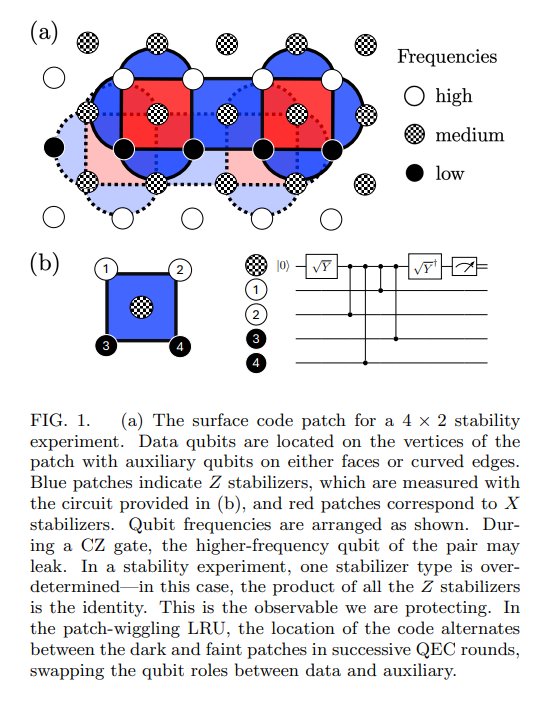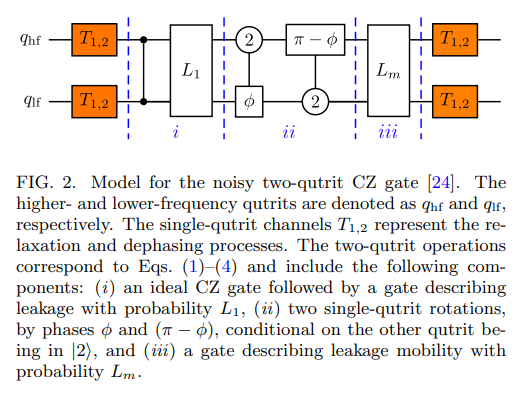Leakage Mobility in Superconducting Qubits as a Leakage Reduction Unit
2024-06-06 16:04
2719 浏览 Leakage from the computational subspace is a damaging source of noise that degrades the performance of most qubit types. Unlike other types of noise, leakage cannot be overcome by standard
quantum error correction techniques and requires dedicated leakage reduction units. In this work,
we study the effects of leakage mobility between superconducting qubits on the performance of a
quantum stability experiment, which is a benchmark for fault-tolerant logical computation. Using
the Fujitsu Quantum Simulator, we perform full density-matrix simulations of stability experiments
implemented on the surface code. We observe improved performance with increased mobility, suggesting leakage mobility can itself act as a leakage reduction unit by naturally moving leakage from
data to auxiliary qubits, where it is removed upon reset. We compare the performance of standard
error-correction circuits with “patch wiggling”, a specific leakage reduction technique where data
and auxiliary qubits alternate their roles in each round of error correction. We observe that patch
wiggling becomes inefficient with increased leakage mobility, in contrast to the improved performance of standard circuits. These observations suggest that the damage of leakage can be overcome
by stimulating leakage mobility between qubits without the need for a dedicated leakage reduction
unit.


Article: https://arxiv.org/abs/2406.04083
